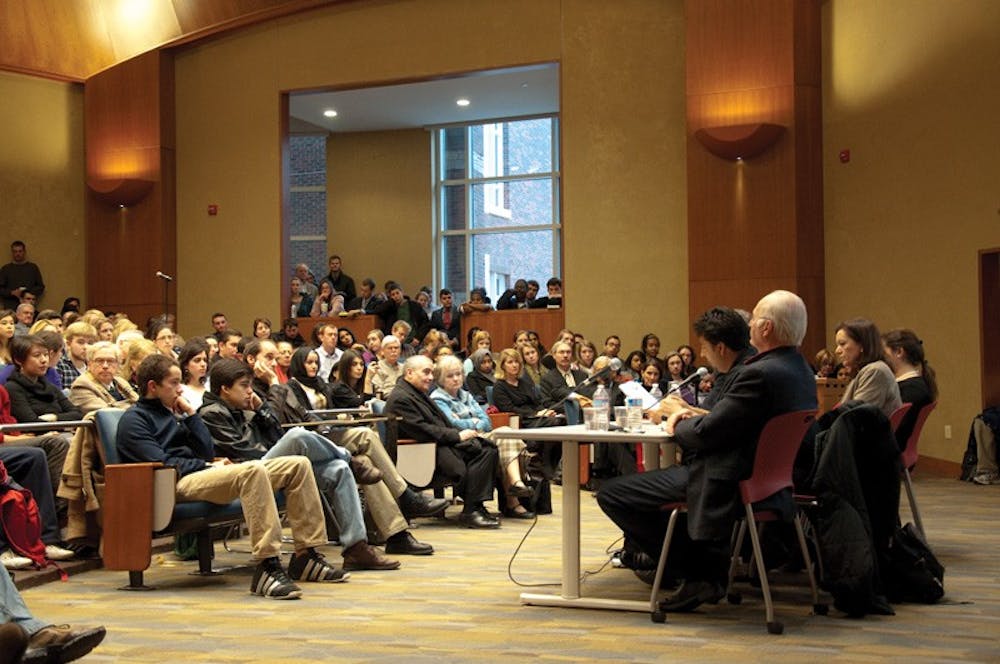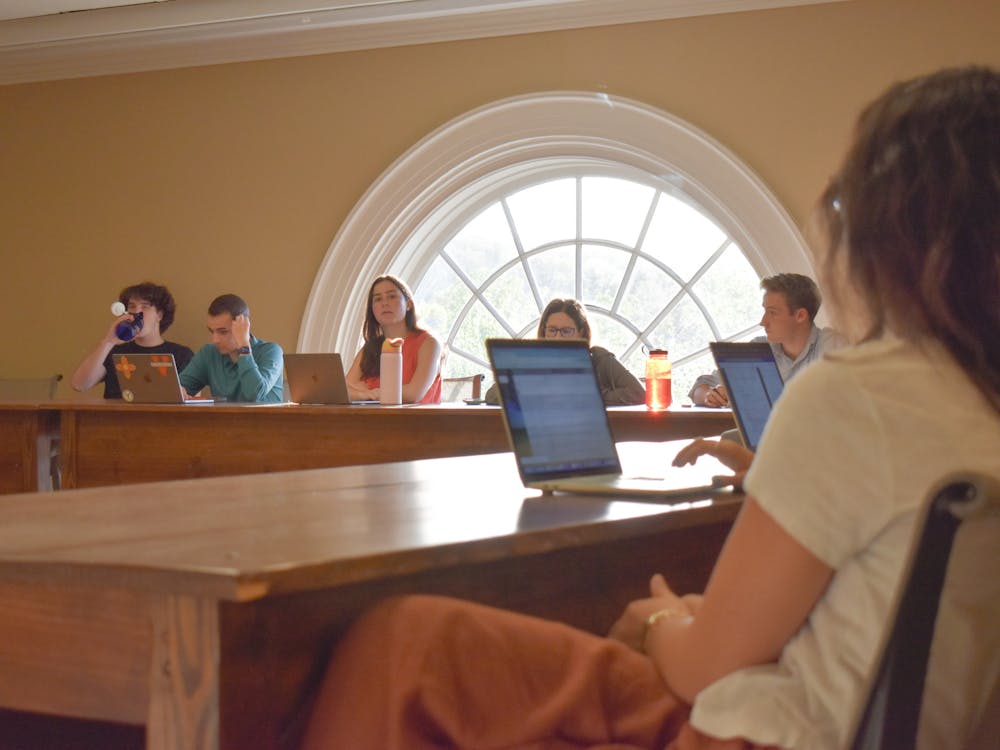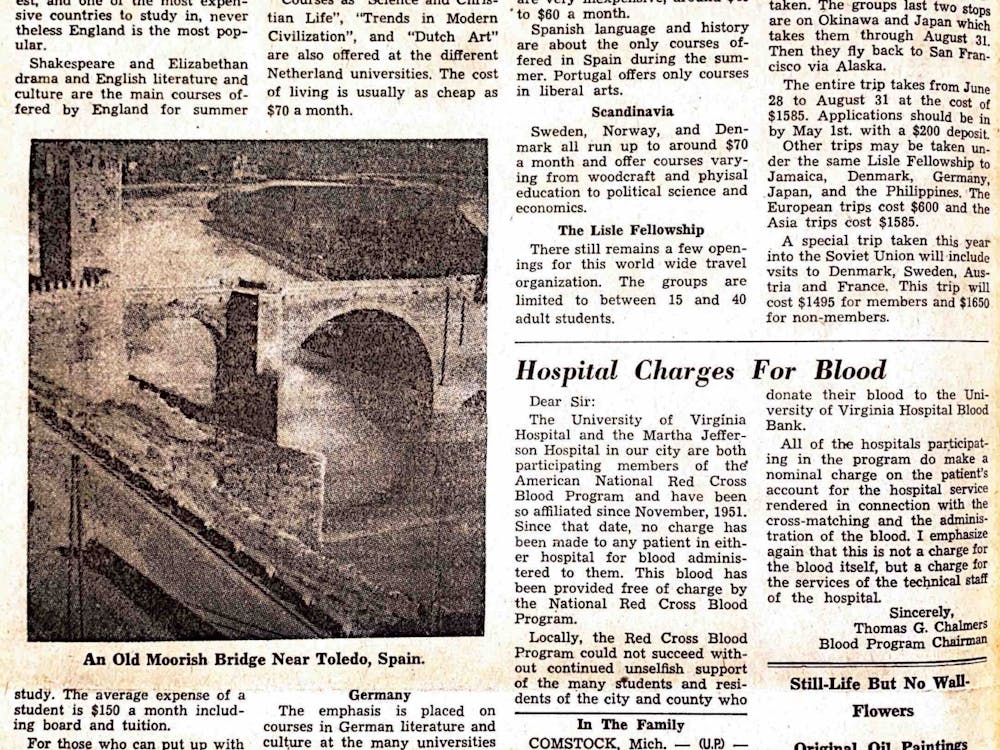Students and faculty gathered last night in Nau Auditorium to discuss ongoing demonstrations and political turmoil rapidly unfolding in the Middle East.
The event, "Revolution in Tunisia, Egypt & Beyond: Democracy on the Horizon?," was hosted by the University's Center for International Studies and featured a panel of speakers including Prof. William Quandt, University Lecturer Miled Faiza and Nejib Ayachi, president and co-founder of The Maghreb Center, a non-profit organization which promotes knowledge of North Africa, in Washington D.C.
Ayachi opened the discussion by detailing the events that have shaken the Middle East since December 2010. One event in particular, Ayachi said, caught the world's attention - the actions of Mohamed Bouazizi, a Tunisian man who set himself on fire in protest of the lack of opportunities and poor living conditions.
"What started as a revolt, initially without meaningful political slogans and regionally limited, has evolved into practically a revolution by demanding that the people be put in charge within the government system, and - in spite of the recession - keeps growing," Ayachi said.
Faiza, who grew up in Tunisia, said the "Facebook-Twitter" effect is the driving force behind the Tunisian revolution and the unrest in Egypt.
"We were brainwashed and we didn't know we were brainwashed," Faiza said, describing the impact of government restrictions on social media and lack of government transparency.\nAs a result of government censorship of the majority of news outlets, Tunisians began to look for their news information using other media sources, such as social networking sites, Youtube and Al Jazeera, the international news network for the Arab world.
Faiza noted that the largest protest organized the day former president Ben Ali fled was initiated through a group on Facebook.
"We can say now that the Tunisian revolution was successful thanks to Facebook and Twitter and YouTube because...the Internet gave people their dignity and power back," Faiza said. "People were able to communicate and support each other, [and had] the feeling that they could unite and organize themselves."
Quandt was in Tunisia days before the unrest commenced.
"The nature of these things, it catches you by surprise," he said. "It took a lot of courage on the part of ordinary Tunisians to go out into the street and take the risk that they [could] be shot."\nThe developments in Egypt are similar to those in Tunisia, Quandt said.
"Banks are closed, people can't get food and jobs," Quandt said. "Frankly, revolutions are inconvenient."
First-year College student Salma Mohamed, who spent Winter Break in Egypt, said she noticed some of the challenges facing her family and peers in the country before the demonstrations even began.\n"I could see a lot of the flaws within the government in the way that people would have to struggle throughout their education, especially through high school and college, and then they wouldn't be able to find jobs," Mohamed said.\nQuandt also addressed the path he believes the United States should take in Egypt.\n"We can work on making sure [President Hosni Mubarak] has a dignified exit and that he isn't strung up and treated badly, but our own concern should be our own foreign policy interest,' Quandt said.\nStudents were concerned with the deluge of media information. Third-year Commerce student Ahmed Sarhan said he found that the large number of available media outlets made it difficult for him to sift through the facts.\n"I'm concerned for my family and friends in Egypt," he said. "I'm looking for truth and I don't know who to believe."\nQuandt replied that using good judgment is the best way to "avoid being captive" of any particular news source.\n"Read widely, think critically, don't accept anything as gospel truth, because in the midst of revolution, things change quickly," he said. "You almost have to suspend judgment at times"





